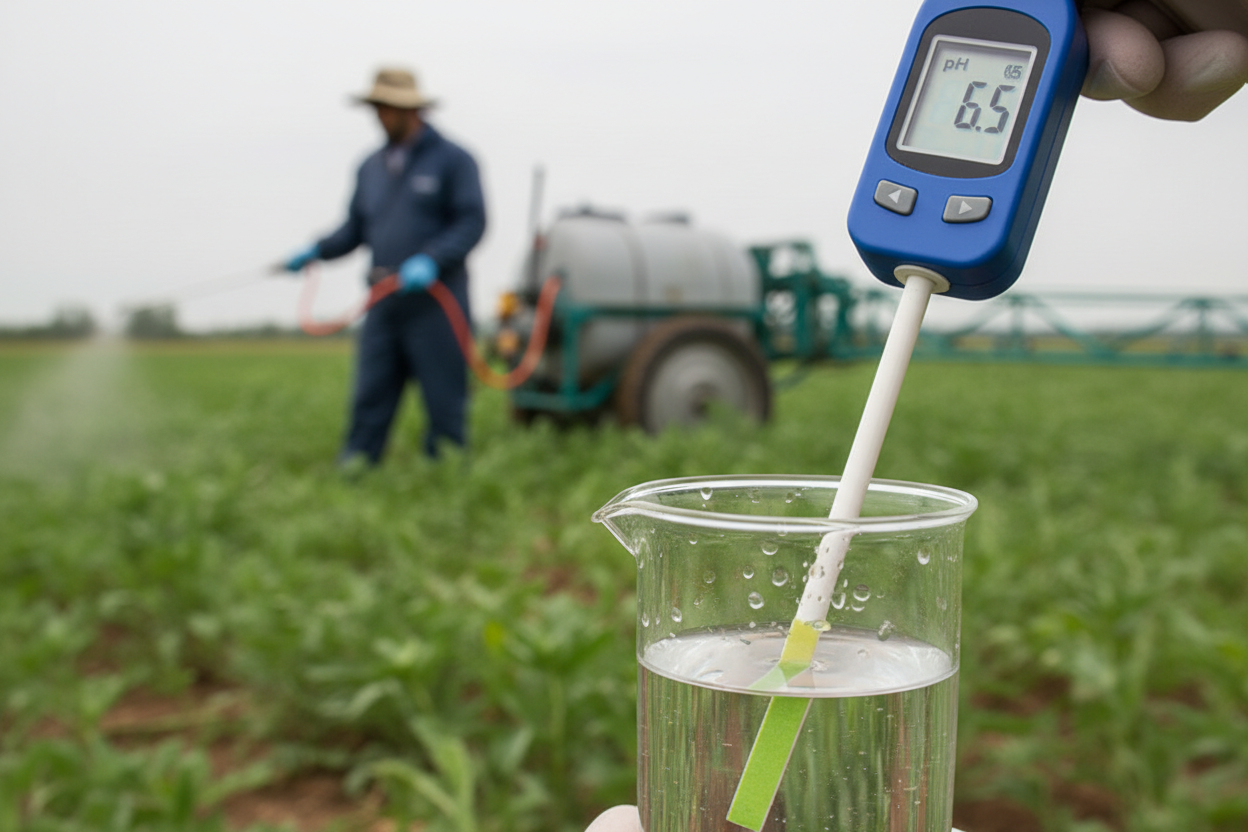
Case Study: Herbicide Resistance Management on Road Networks
Road networks play a crucial role in transportation across Australia. They often face a persistent problem—weed infestations that compromise safety and aesthetics.
For years, glyphosate had been the primary herbicide of choice for managing these roadside weeds. However, over time, the weeds developed resistance to glyphosate, leading to an escalating problem. This case study explores how the management of herbicide resistance occurred through the implementation of herbicide rotation strategies. The outcome: improved and sustainable weed management on Australian road networks.
The Problem: Glyphosate Resistance
Identifying the Issue
Glyphosate resistance was discovered when road crews saw that certain weeds were no longer affected by glyphosate treatments. These uncontrolled weeds posed safety hazards, blocked sightlines, and negatively impacted the environment. It became evident that the dependence on glyphosate had led to weed populations with varying levels of resistance.
Read additional blogs about Herbicide Resistance Here:
Investigating the Situation
To address the issue, authorities conducted extensive research. They found that repeated use of glyphosate without rotation had exerted selective pressure on weed populations. This had allowed glyphosate-resistant biotypes to thrive and spread. Laboratory testing and field trials confirm the occurrence of glyphosate resistance.
Implementing Herbicide Rotation Strategies
Herbicide Selection
Recognising the need for a more sustainable approach to weed control, authorities decided to implement herbicide rotation strategies. This involved changing the herbicides used along road networks to reduce the selective pressure on any one product.
Selecting Alternative Herbicides
Authorities selected alternative herbicides with different modes of action to ensure effective control of glyphosate-resistant weeds. These herbicides included triclopyr, picloram, metsulfuron-methyl, and fluroxypyr, among others. They chose each herbicide for its effectiveness against specific weed species and resistance management benefits.
Customised Application Plans
By developing customised application plans the effectiveness of herbicide rotation is maximised. The different regions have had application plans developed for them. When plans are developed they take into consideration the weed species and their resistance status. These plans included:
-
Timely Application: Herbicides were applied at the optimal growth stage of the target weeds. This enhanced their control.
-
Correct Mixing Ratios: Ensuring that herbicides were mixed and applied at the right concentrations to achieve effective control.
-
Proper Equipment Maintenance: Regular maintenance of spray equipment to prevent herbicide resistance that was caused by inadequate coverage.
Monitoring and Adaptation
Ongoing monitoring of weed populations and herbicide effectiveness allowed authorities to adapt their strategies as needed. When researchers detected resistance to a herbicide, they introduced alternative products with different modes of action.
Results and Benefits
The implementation of herbicide rotation strategies brought about several significant benefits:
-
Improved Weed Control: Rotating herbicides and using multiple modes of action resulted in more effective control.
-
Reduced Environmental Impact: Reduced reliance on glyphosate and targeted herbicide use minimised the environmental impact of weed control efforts.
-
Enhanced Safety: Improved weed control on road networks contributed to safer transportation for all road users.
-
Cost Savings: More efficient and effective weed control strategies led to cost savings in the long term.
Preventing Future Resistance
To prevent the recurrence of herbicide resistance, authorities put in place several preventative measures:
-
Continuous Monitoring: Ongoing monitoring of weed populations to detect early signs of resistance.
-
Education and Training: Training for road maintenance crews on the importance of herbicide rotation and resistance management.
-
Research and Development: Investment in research to identify new herbicides and technologies for weed control.
The management of herbicide resistance in roadside weed populations stands as a pivotal success story. The recognition of glyphosate resistance prompted a strategic shift towards implementing herbicide rotation strategies, marking a crucial turning point in weed control practices.
Through meticulous investigation and proactive measures, authorities were able to identify the root causes of resistance and respond accordingly. The introduction of alternative herbicides with distinct modes of action, coupled with customised application plans, showcased a remarkable enhancement in weed control efficacy.
Measures put in place to prevent herbicide resistance will deliver sustained success in managing roadside weed populations. These measures include continuous monitoring, education, and investment in research and development.
This case study highlights the importance of using many weed control methods. It also shows the significance of ongoing vigilance and innovation in preserving road safety and environmental well-being.
Additional content
VIEW GWS' ADDITIONAL CONTENT TO LEARN MORE ABOUT THE WEED INDUSTRY

One of the strongest arguments for Integrated Vegetation Management is not operational, it is governance based. In traditional reactive vegetation management models, decisions are often difficult t...
Read more
As Integrated Vegetation Management gains traction, one question consistently arises, how do we change contracting models without increasing risk or losing governance control. This concern is under...
Read more
Town Water pH in Australia and Its Impact on Weak Acid Herbicides
Australian vegetation managers often assume that town water is neutral and therefore suitable for spraying without adjustment. In practice, most municipal and regional water supplies are treated to...
Read more
